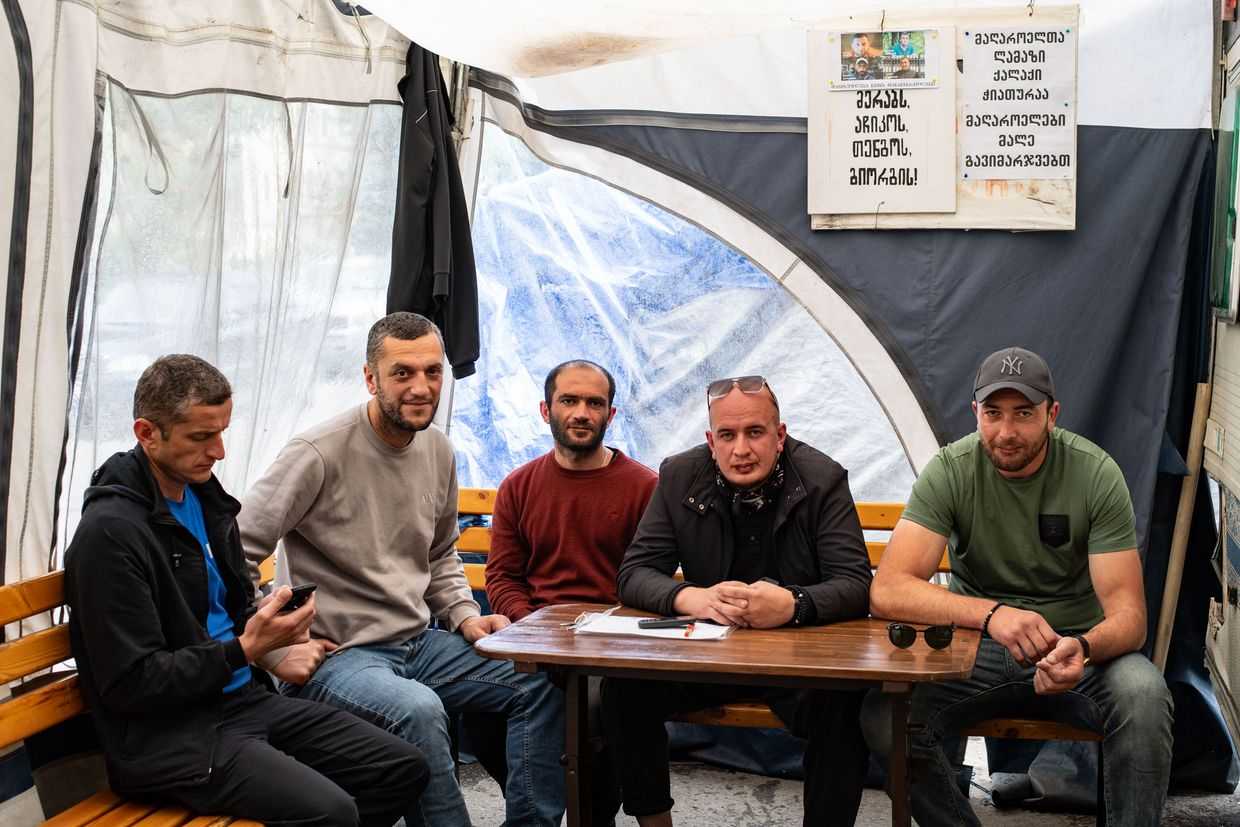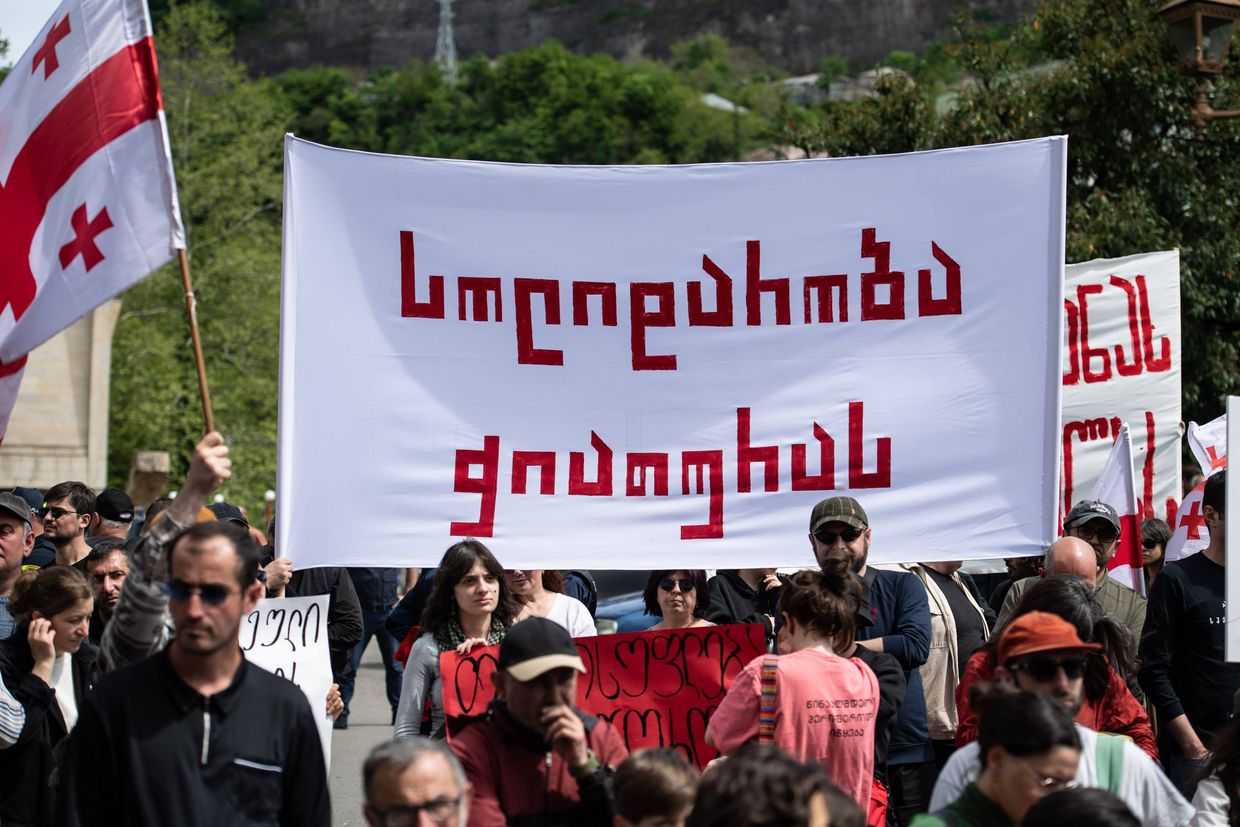Shukrutians end hunger strike in Tbilisi after mining company agrees to negotiations
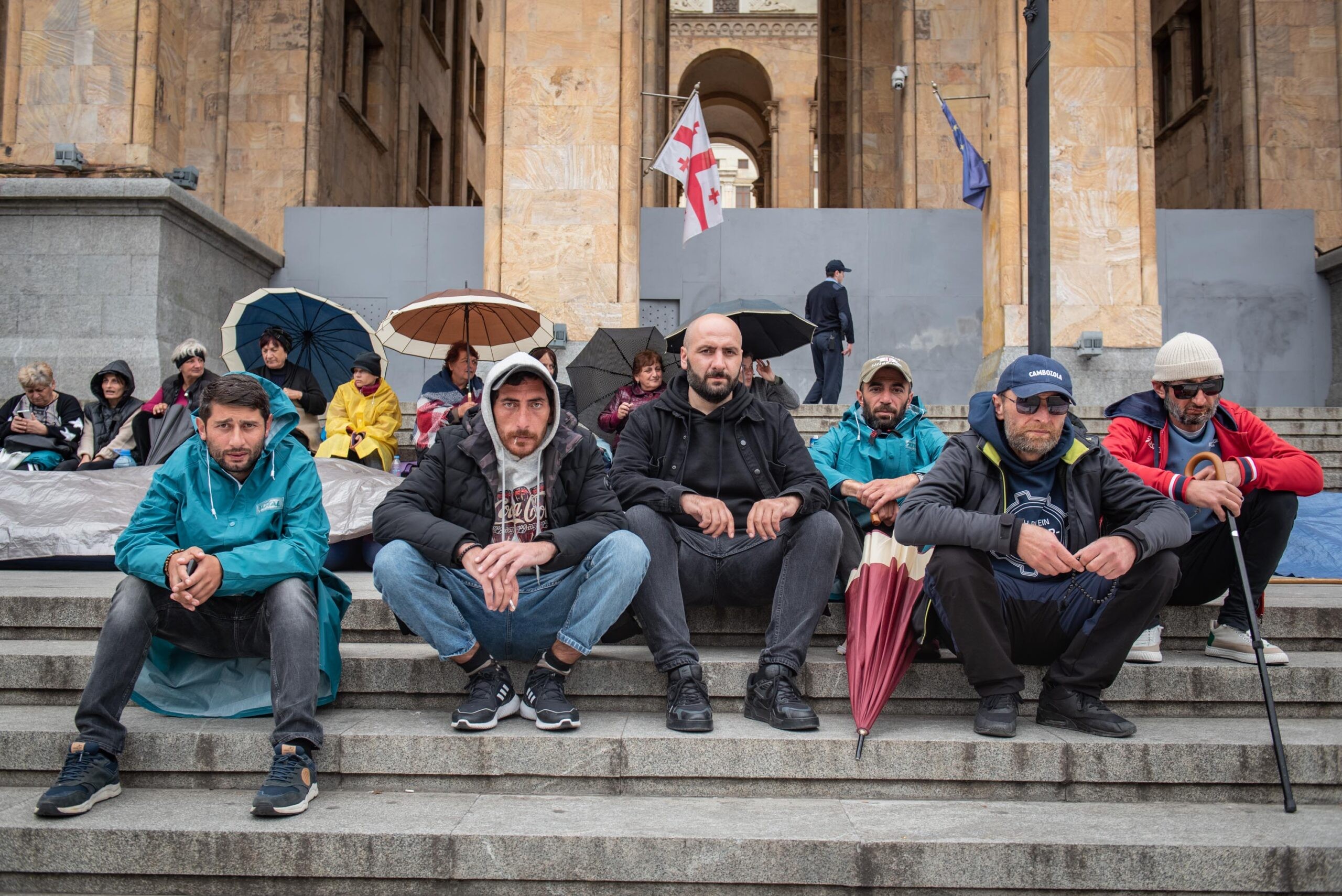
Residents of the village of Shukruti who have been protesting the destruction of their village outside the Georgian parliament have agreed to end their hunger strike after 43 days, to begin negotiations with the mining company.
The Chiatura Management Company, which runs the mines in and around the central Georgian town of Chiatura, agreed to begin negotiations with the protesters after the government intervened.
On Sunday, Rati Ionatamashvili, an MP from the ruling Georgian Dream party, met with the protestors and offered to mediate with the Chiatura Management Company.
The involvement of government representatives in any mediation processes has been one of the main demands of Shuktruti residents since the protests relaunched in March.
The first mediation meeting was held on Sunday, and was made up of two protestors, two representatives of the company, and Ionatamashvili as a government representative.
Despite ending their hunger strike, the protesters have said they will continue their round-the-clock protest outside parliament until a final agreement is reached.
Giorgi Neparidze, one of the protesters who took part in the meeting, said the company had expressed a willingness to ‘finally resolve this issue for good’ and sign a fair agreement.
He added that during the meeting, the company took responsibility, and promised to not resume mining near the village until an agreement was reached.
He also confirmed to OC Media that the protestors had agreed to end their hunger strike. Seven men took part in the hunger strike for 43 days, while two women participated for the last 12 days. The hunger strikers have since been sent to hospital for rehabilitation.
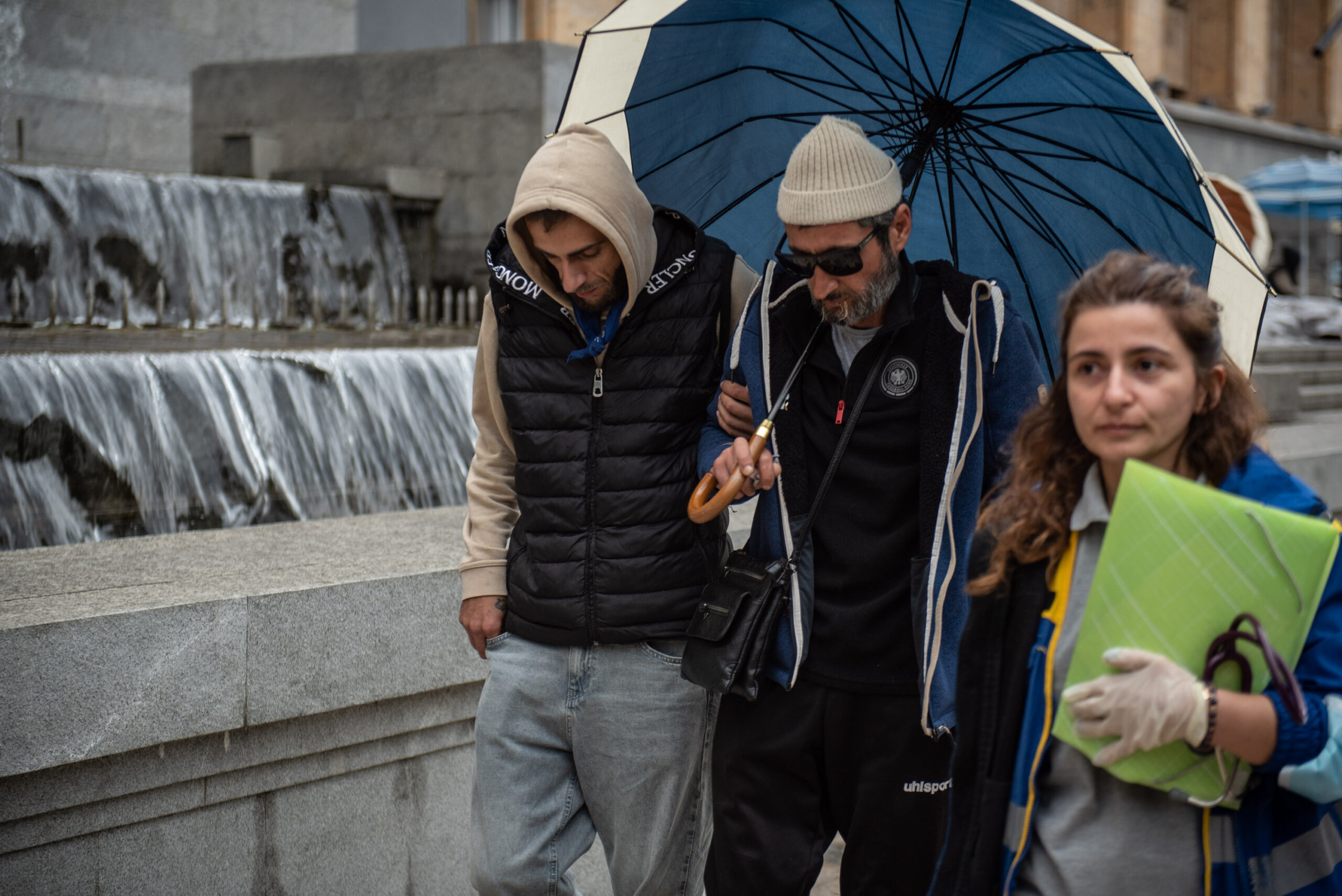
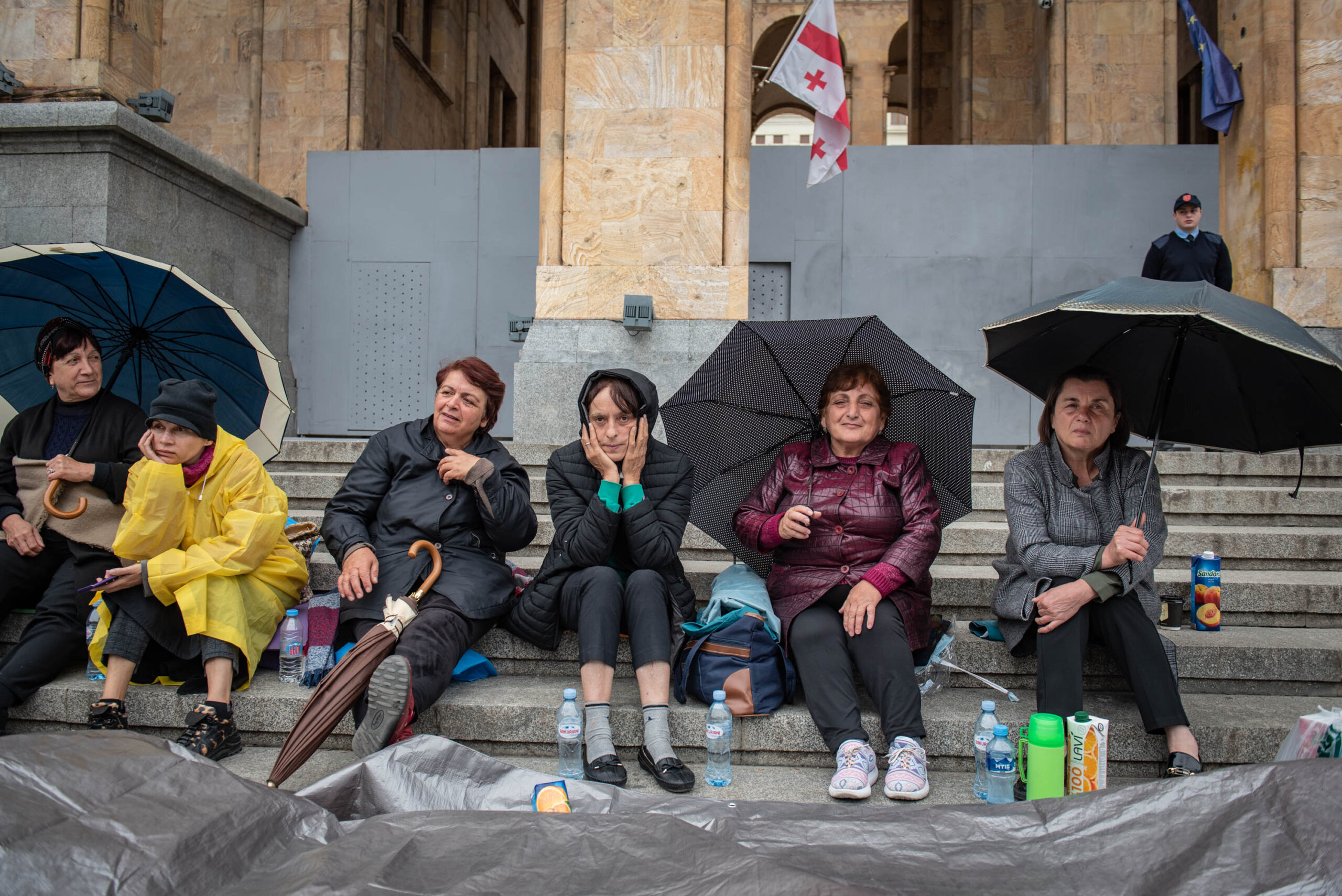
The next meeting has been scheduled for Tuesday.
‘These processes haven’t ended yet. It is just starting and I hope we will reach a logical and fair end of it very soon’, Neparidze said.
Chiatura Management Company, which took over the operations of mines in Chiatura from Georgian Manganese in 2024, published a short statement on 13 October about the start of negotiations. According to the statement, the purpose of the negotiations was to ‘finally resolve the problematic issue and end the protest’.
‘Discussion of the issue in a constructive mode, through negotiation, was a priority for our company from the very first day of the protest’, read the company statement.
Shukruti residents first started protesting in 2019 in an attempt to raise awareness of the destruction of their village caused by Georgian Manganese, the company that owned the license to operate mines in the Chiatura region. Residents have demanded fair compensation for the destruction of thor houses and agricultural land.
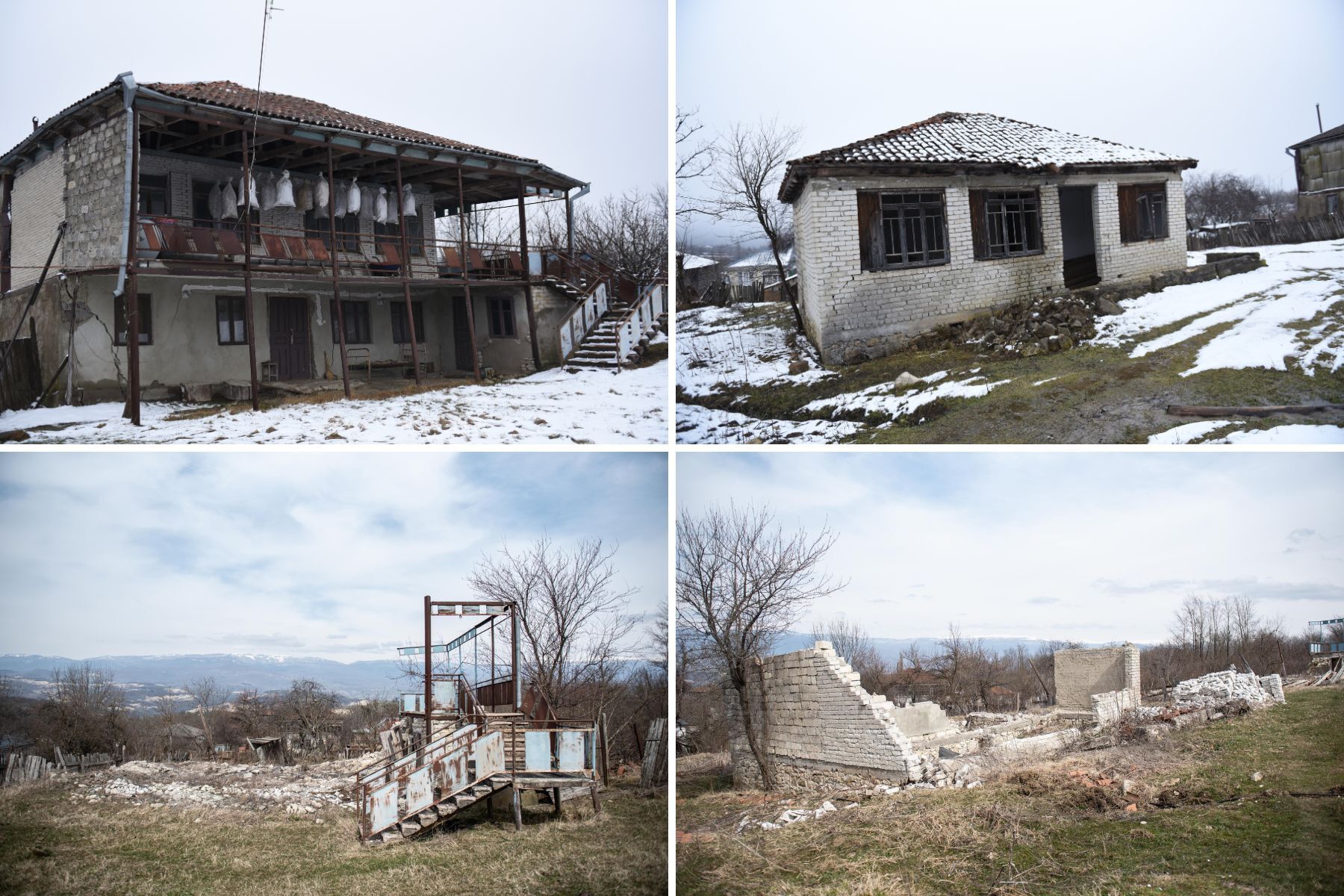
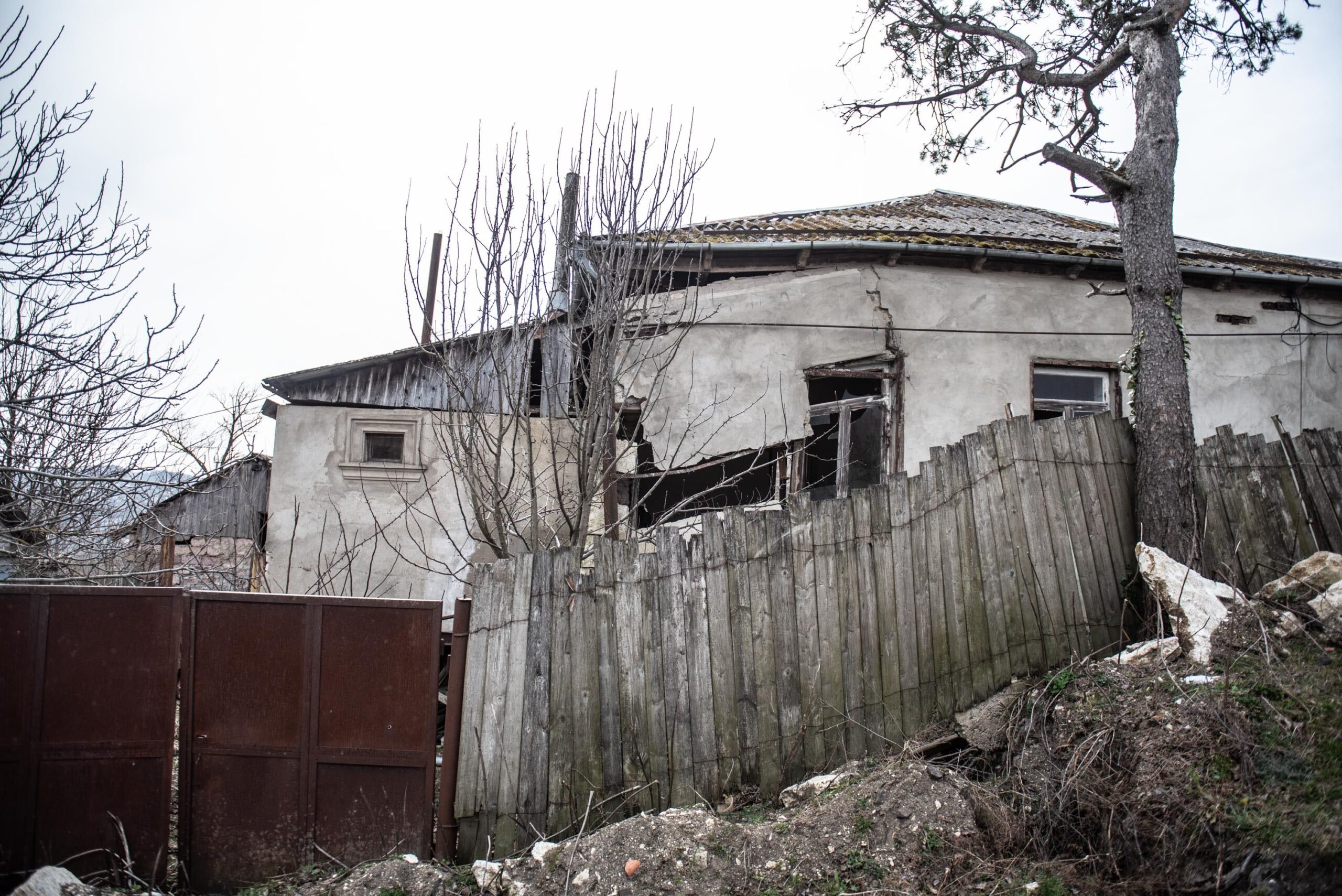
[Read more: In Pictures | Living on the brink of collapse in Shukruti]
Since then, protests have continued on and off. In 2021, after 30 days of hunger strike, which included some protestors sewing their mouths shut, an agreement was signed without any government involvement. According to the protestors, however, the company later reneged on the agreement.
In March, protests began again for a fifth time. This time, the company used a variety of different tactics to end the protest: five people have been fired, while different pages on social media affiliated with the company have been publishing posts to distort the image of the protest and create mistrust in society towards the protestors. In addition, multiple lawsuits have been filed against protesting Shukruti residents, banning them from selling or mortgaging their property, and restricting them from blocking the entrances to mines as part of their protest.




